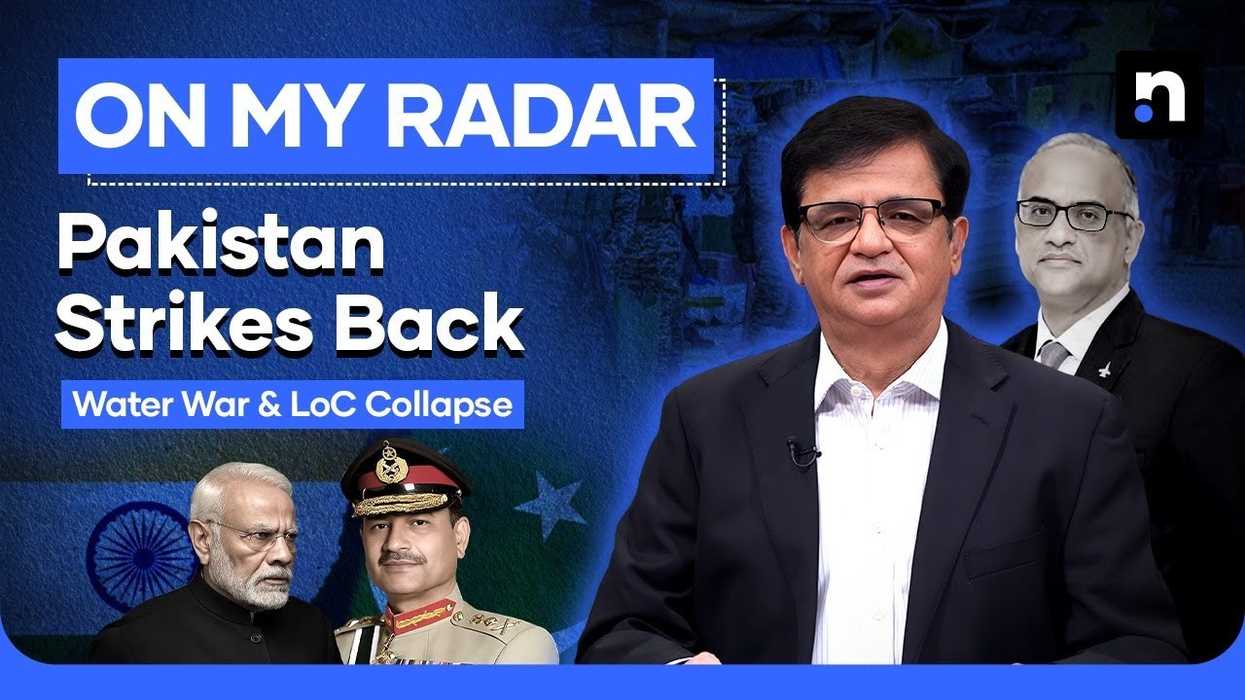Indus Waters Treaty suspended as South Asia faces rising risk of conflict
Kamran Khan warns the Indus treaty suspension could drag the region into a dangerous new conflict
News Desk
The News Desk provides timely and factual coverage of national and international events, with an emphasis on accuracy and clarity.
Tensions between Pakistan and India have surged to dangerous new levels after New Delhi suspended the decades-old Indus Waters Treaty and blamed Pakistan for a deadly attack on tourists in Indian administered Kashmir.
Kamran Khan, in his latest vlog, said that India has accused Pakistan of orchestrating the killing of 26 tourists in Pahalgam, triggering a wave of diplomatic and strategic retaliation between the two nuclear-armed rivals.
In what Khan described as the most serious escalation in years, India closed the Attari border crossing and canceled visas for Pakistani citizens. Pakistan responded in kind, shuttering the Wagah crossing, suspending visas for Indian nationals—except Sikh pilgrims—and banning all Indian-owned or operated airlines from its airspace.
"The Modi government has lit a fuse by suspending the Indus Waters Treaty," Khan said, referring to the 1960 water-sharing agreement brokered by the World Bank. "Pakistan, in response, has signaled its readiness to suspend the 1972 Simla Agreement, which underpins all bilateral diplomacy between the two nations."
The treaty, which divides six rivers between the two countries, has survived multiple wars and crises. Under its terms, India controls the eastern rivers—Ravi, Beas and Sutlej—while Pakistan depends on the western rivers—Indus, Jhelum and Chenab—for 80% of its agriculture.
“Any disruption of this flow is a direct threat to Pakistan’s lifeline,” Khan warned. He added that international law offers little room for unilateral suspension, and India’s actions risk turning water into a weapon.
Kamran Khan said Pakistan’s leadership has reacted firmly but with strategic restraint. “Despite provocations, Islamabad has remained composed, but it has made clear that blocking Pakistan’s water will be treated as an act of war,” he said.
The Simla Agreement, signed after the 1971 war, established a bilateral framework for resolving all disputes, including Kashmir. If Pakistan withdraws from the pact, it could internationalize the Kashmir issue, open the path for United Nations intervention, and undermine India’s longstanding position that the matter is bilateral.
Kamran Khan explained that without Simla, the legal status of the Line of Control in Kashmir could also be challenged. “It will also make surgical strikes and proxy warfare more likely, as the diplomatic guardrails vanish,” he said.
Khan also pointed to the role of China, which controls the source of several rivers flowing into India’s northeast. “If New Delhi uses rivers as weapons, Beijing could respond in kind, and there’s no treaty to stop it,” he said, citing recent commentary by China’s state-run Global Times.
The Pakistani National Security Committee has issued a stern warning, calling any attempt by India to block water an "act of war." It vowed to respond with its full military spectrum, including conventional and nuclear capabilities.
“The suspension of these two agreements is not just a diplomatic crisis,” Khan said. “It marks the drawing of a red line in South Asia.”
He urged the international community to intervene diplomatically and prevent a deeper crisis. “Two nuclear-armed states edging toward war is a danger the world simply cannot afford,” he said.
Khan concluded by calling for urgent global mediation. “The only real solution is dialogue. War is not an option—not for Pakistan, not for India, and not for the world.”








Comments
See what people are discussing